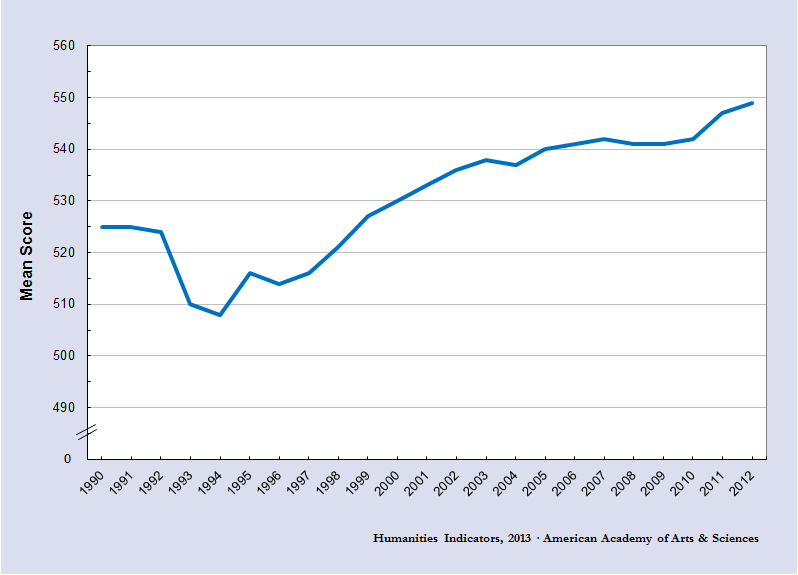Mean Graduate Record Examination Literature in English Subject Test Score, Reporting Years 1990–2012*

* Each data point represents a three-year moving average to smooth out anomalous one-year variations. Thus, for example, the 2012 data are based on the performance of all examinees who tested from July 1, 2009 to June 30, 2012.
Source: Data for reporting year 2012 obtained from GRE: Guide to the Use of Scores, 2013–2014 (Princeton, NJ: Educational Testing Service, 2013), 26 table 2. Data for previous years provided by the Educational Testing Service's Higher Education Division at the request of the Humanities Indicators.
Source: Data for reporting year 2012 obtained from GRE: Guide to the Use of Scores, 2013–2014 (Princeton, NJ: Educational Testing Service, 2013), 26 table 2. Data for previous years provided by the Educational Testing Service's Higher Education Division at the request of the Humanities Indicators.
Significant qualifications apply to these findings:
The GRE subject exams are not taken by a representative sample of the U.S. undergraduate population. GRE scores gauge the performance only of those undergraduates who apply to graduate programs that require the exam.
The GRE data presented here include some examinees who have been out of college for several years. A formal assessment of undergraduate learning (as opposed to readiness for graduate study, which is what the GRE is designed to measure) would ideally be administered immediately before or after graduation.
A portion of the test-takers did not major in a humanities field as undergraduates. The GRE subject exams are taken by all students who wish to pursue graduate studies in the discipline regardless of their undergraduate major.

